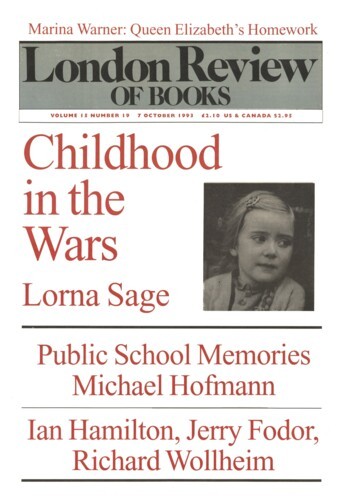Reluctant Psychopath
Colin MacCabe, 7 October 1993
The photograph of the author on the jacket is warning enough. He is dressed all in black, poised as though ready to pounce; his eyes fix you through a cloud of smoke. The cigarette, which is positively belching fumes, is held at the precise angle guaranteed to cause the most severe nicotine staining of the fingers. This is not the author as good guy but the author as knowing addict – an adept of Burroughs’s Dr Benway and his Algebra of Total Need. Indeed the alternative title to this extraordinary novel could well be the eternal Burroughsian question – ‘Wouldn’t you?’’

